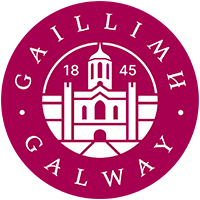About the Project
Position: Funded PhD programme
Institute: National University of Ireland Galway
Duration: 4 years
Start date: April/May/June 2018
This project entails the development of finite element models of the mechanical behaviour of blood clots. In particular, the fracture mechanics of blood clots will be investigated. In addition to finite element modelling, experiments will also be performed. The project goal is to perform finite element simulations of the process of removing blood clots from vessels in the brain using stent retriever devices. An important part of such a simulation platform is the investigation of the mechanical behaviour and fracture properties of blood clots including the development of an experimental test programme. During thrombectomy procedures clots are deformed by the stent device and this presents a risk of fracturing the clot, which can result in fragments lodging throughout the brain vasculature. The fracture mechanics of blood clots will be modelled so that improved next-generation thrombectomy devices can be developed.
This is a collaborative EU funded H2020 project between industry, clinicians, and university partners across Europe. The successful candidate will work directly with project industry partner Neuravi (a leading Galway based company developing next generation thrombectomy devices), clinical partners at the Amsterdam Medical Centre (the leading medical imaging institute in Europe), and finite element modelling partners at Polytechnico Milano (leading medical device design institute). The project will also involve collaboration with and academic partners in Oxford, Belgium, Switzerland, France and Russia.
Applications
To apply for this position, please send a CV (pdf format) to [Email Address Removed] . Please type the following text in the e-mail subject line: “Thrombectomy finite element simulation: Funded PhD position”.
Requirements for position
Essential
• 1st Class Honours undergraduate degree or Masters in mechanical/biomedical /structural or civil engineering, or equivalent;
• Strong background in finite element analysis of solids and structures;
• Strong background in solid mechanics, fracture mechanics, structural analysis and continuum mechanics;
Advantageous but not essential
• Mechanical testing of materials
Project Principal Investigator: Dr Patrick McGarry, National University of Ireland Galway
About the project Principal Investigator: Dr Patrick McGarry’s research focuses primarily on computational and experimental mechanics. He has published over 65 journal papers and over 90 conference abstracts/proceedings in the areas of tissue mechanics, cell mechanics, medical device design, fracture mechanics, plasticity, and composite structures. He joined the College of Engineering and Informatics the National University of Ireland Galway (NUIG) as faculty in 2006. Dr McGarry has held a number of external appointments: Visiting Professor at the Technical University of Graz, Austria; J. Tinsley Oden Faculty Fellow at the Institute for Computational Engineering Science at the University of Texas at Austin; Visiting Faculty at the Department of Engineering, University of Cambridge, UK. His research group has produced 12 PhD graduates and has been awarded five major international research prizes and eight national research prizes. In 2015 Dr McGarry was awarded the NUIG President’s Award for Research Excellence. He has been awarded four major research grants by Science Foundation Ireland. He is the Programme Director for the BE Degree in Biomedical Engineering at NUIG. Dr McGarry previously worked as a post-doctoral researcher at the University of California Santa Barbara, and at the National Centre for Biomedical Engineering Science (NUIG). Dr McGarry’s research group currently consists of two post-doctoral researchers and six PhD students working together in a dynamic research environment, incorporating several international collaborations.
About the National University of Ireland Galway: The National University of Ireland Galway is a world leader in the field of biomedical engineering science and medical device research. The National Centre for Research in Medical Devices (CÚRAM) is based in the university. This Science Foundation Ireland funded (€50m) research centre brings together internationally leading engineers, scientists and clinicians to develop next-generation innovative implantable medical devices to treat major unmet medical needs. Galway is a major global hub for the Med-Tech industry. Several leading multi-national medical device companies have established their European headquarters in the region. Additionally, an extensive community of indigenous start-up companies has emerged over the past twenty years. The CÚRAM research centre is an integral part of this vibrant Med-Tech ecosystem, developing active collaborations with over 40 industry partners, and providing support for the creation of new spin-out companies. For more information on CÚRAM please refer to http://www.curamdevices.ie/
Funding Notes
Four years of funding are available at a very competitive PhD salary. The project will involve several international travel opportunities, including regular consortium meetings and research visits to project partners. A project website is currently under construction (https://www.insist-h2020.eu/ ). Some preliminary project information is currently available.

 Continue with Facebook
Continue with Facebook

